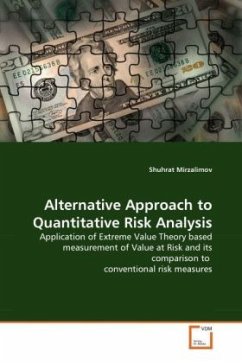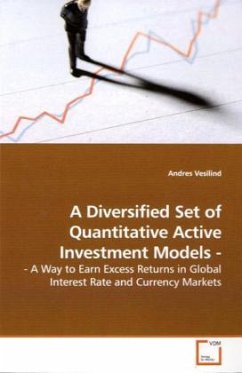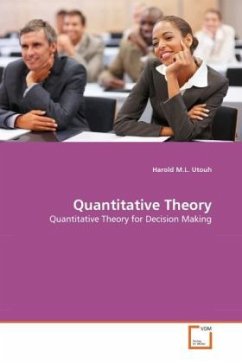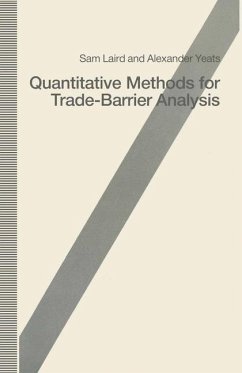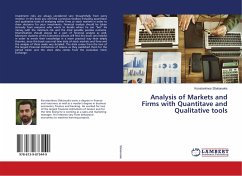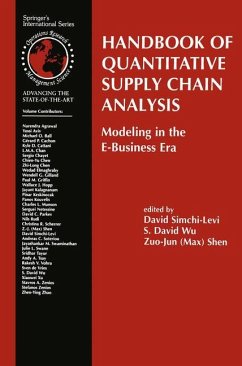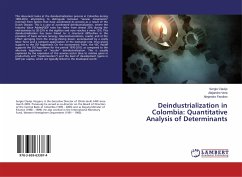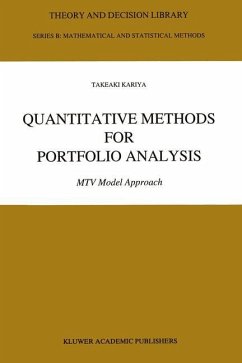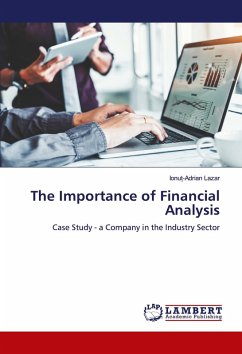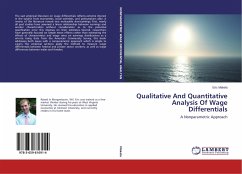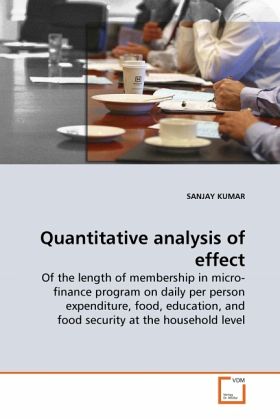
Quantitative analysis of effect
Of the length of membership in micro- finance program on daily per person expenditure, food, education, and food security at the household level
Versandkostenfrei!
Versandfertig in 6-10 Tagen
32,99 €
inkl. MwSt.

PAYBACK Punkte
16 °P sammeln!
As a large number of non-profit organizations and government agencies are taking up the concept of micro-finance as a tool towards the eradication of poverty, it becomes necessary to examine the impact of participation in micro-finance on household expenditure in a long run. Once the client makes the decision to be a member of a particular MFI, it becomes imperative to examine the impact of participation on the household outcomes such as the consumption pattern, human capital such as schooling, food security, and asset accumulation of the participating clients so as to examine if there is any ...
As a large number of non-profit organizations and government agencies are taking up the concept of micro-finance as a tool towards the eradication of poverty, it becomes necessary to examine the impact of participation in micro-finance on household expenditure in a long run. Once the client makes the decision to be a member of a particular MFI, it becomes imperative to examine the impact of participation on the household outcomes such as the consumption pattern, human capital such as schooling, food security, and asset accumulation of the participating clients so as to examine if there is any significant impact of micro-financial services. This paper is an attempt to find out the benefits of participation in micro-finance programs, where benefits are measured in terms of daily per person expenditure (DPPE), DPPE on food, education, and food security and satisfaction with life. Data was collected from June 2007 to August 2007 from the 5 branches of Thaneakea Phum Cambodia Ltd- a local micro-finance institute serving largely a rural population in Cambodia. Survey was conducted with 310 clients.



